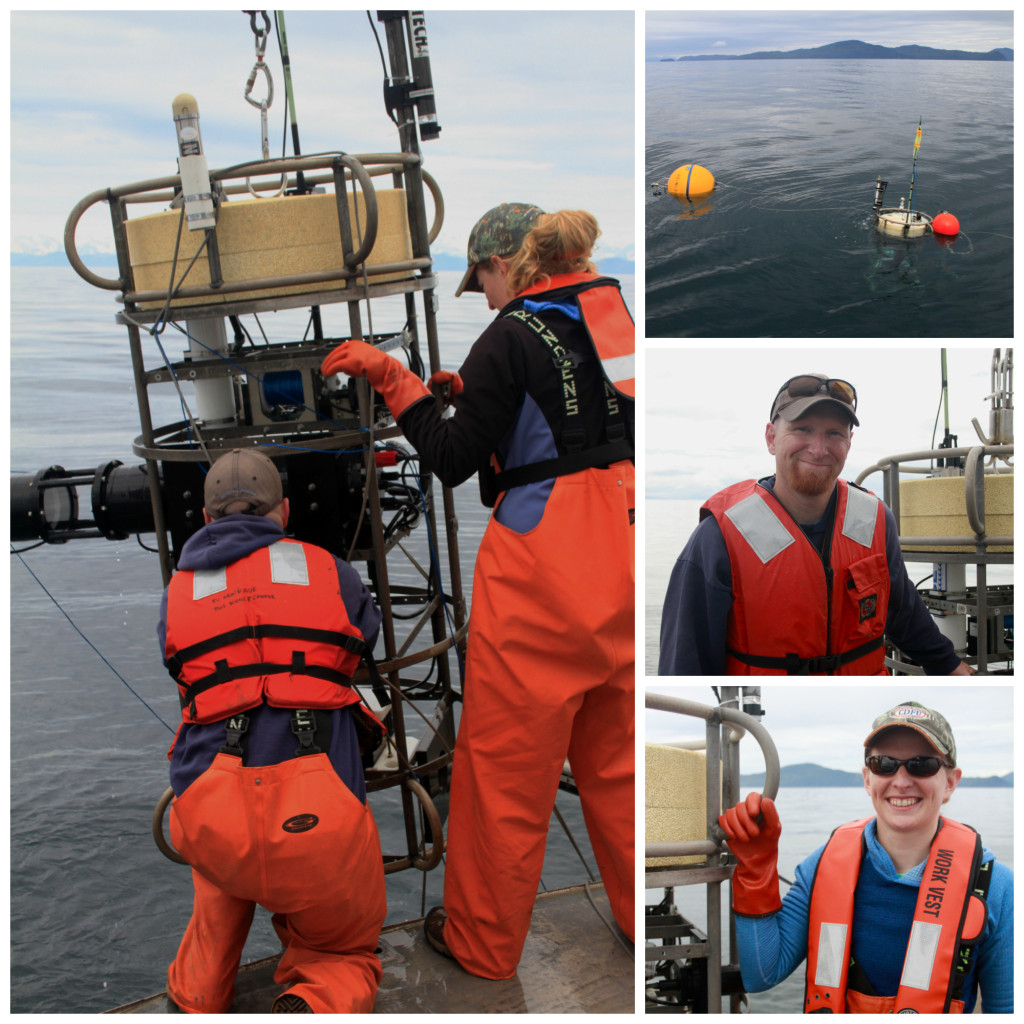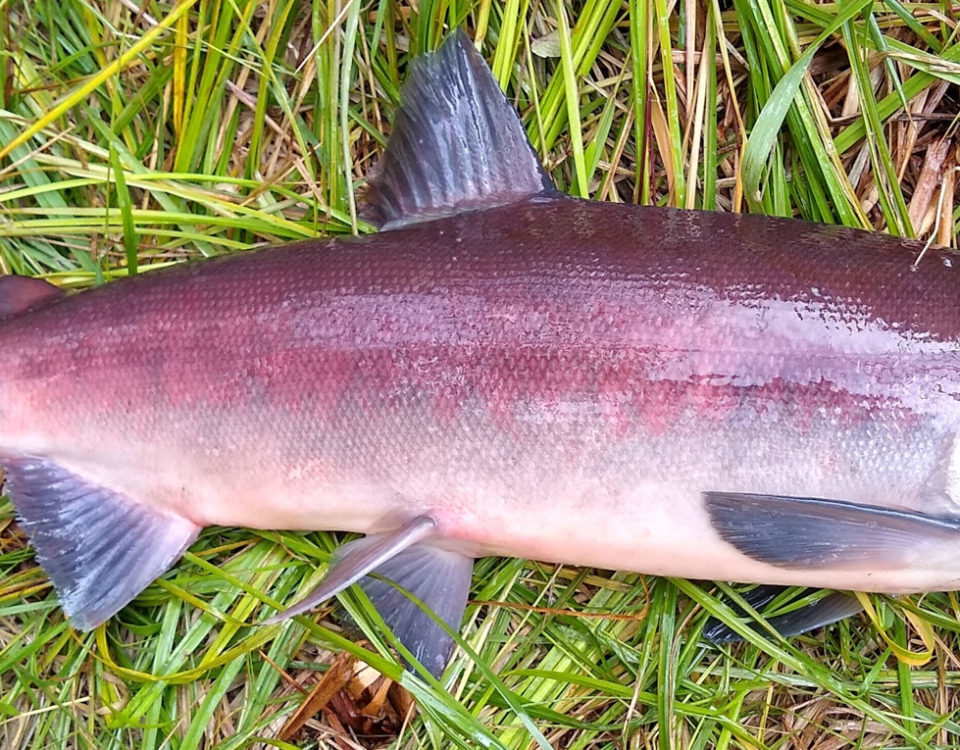Photos and Sounds from Our Underwater Robot


Science Center oceanographer, Dr. Rob Campbell, and research assistant, Caitlin McKinstry perform routine check-in on oceanographic profiler
In the darkest hour of the night, it uses a 3mm-wide lifeline to climb about 200 feet toward the surface of Prince William Sound. After it completes its mission, it descends back to safety, and repeats this process every 12 hours.
This monster of the deep is an ocean robot called an ‘autonomous moored profiler’. The Prince William Sound Science Center uses this robot to collect long-term oceanographic data that wouldn’t otherwise be possible. Who wants to pull up 1000 pounds of fragile oceanographic equipment and mooring gear while fighting rough seas? Science Center research assistant, Caitlin McKinstry explains that “the profiler is a safe way to monitor what’s really going on,” since it continuously collects data, despite the weather conditions.
Not only does this profiler monitor oceanographic conditions, such as salinity, temperature and depth, but it also eavesdrops on our underwater neighbors. A
hydrophone, or underwater microphone, records sounds and has provided killer whale scientist, Craig Matkin, with insight into the whereabouts of Prince William Sound pods,
including the declining AB pod that was severely impacted by the ‘89 oil spill. Check out
the sounds below to listen to a killer whale ‘conversation’ recently picked up by
this hydrophone.
This profiler also allows our scientists to get a glimpse of what’s passing through via a plankton camera, which captures photos of surrounding plankton, small plants or animals that are the base of marine food webs. Collecting data twice daily, the profiler allows our scientists to get a deeper glimpse into oceanic patterns. Many plankton species become more active at night as a way of avoiding predation, or as Science Center oceanographer, Dr. Rob Campbell describes, “it’s when plankton are doing their plankton thing.” Because plankton play a large role in the productivity of Prince William Sound, and consequently the fishing industry, these photos and other data collected by the profiler are key to understanding the health of marine our ecosystems.
If you fish in Cordova, or know people who do, you have probably already caught wind that the salmon are smaller this year. Research suggests that the recent warm water anomaly, nicknamed ‘the blob,’ has had profound effects on our marine ecosystems. Though the warm waters may not be the sole cause for smaller fish size, research shows that warm waters can negatively affect salmon viability. Essentially, Dr. Campbell explains that “salmon are cold-water fish, so they don’t do as well when it’s warmer.”
Prior to the Exxon Valdez oil spill, ocean monitoring data in Prince William Sound was severely lacking. Today, scientists hope that increased efforts and technology like the Science Center’s profiler will allow us to keep tabs on large-scale ocean trends, particularly as climate change affects our waters and food sources.




